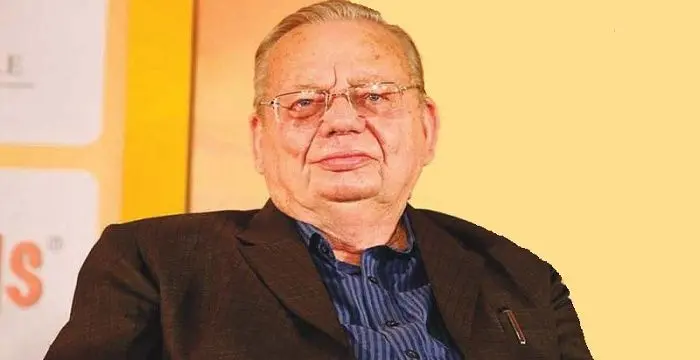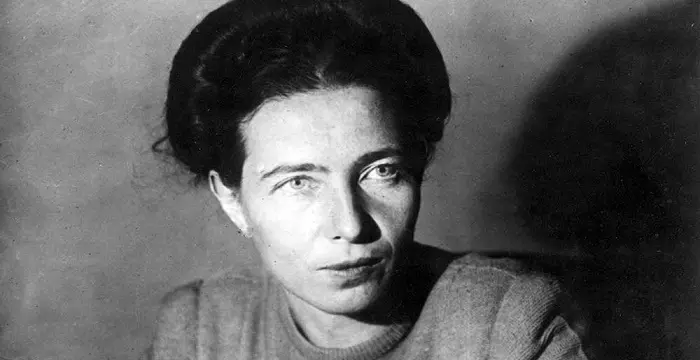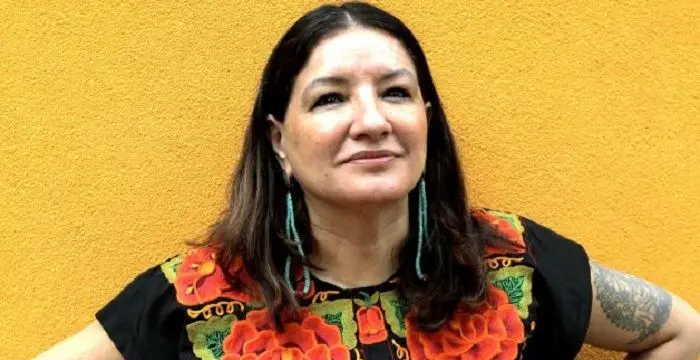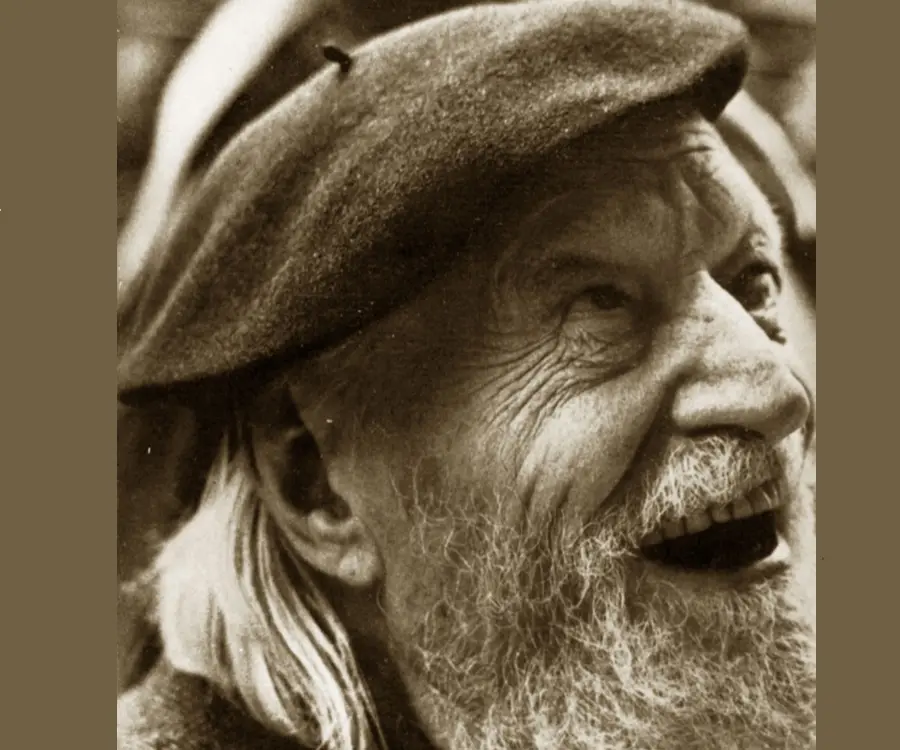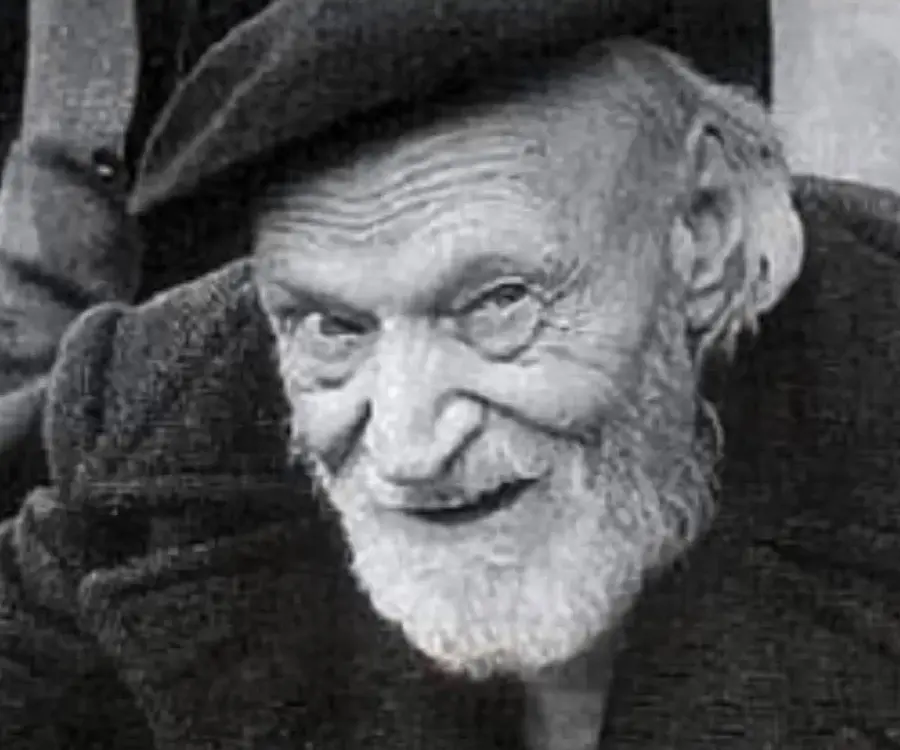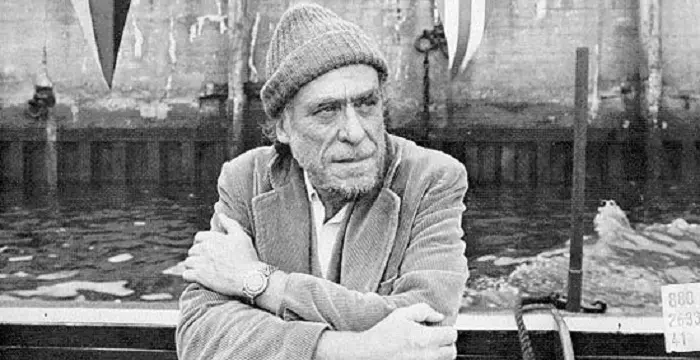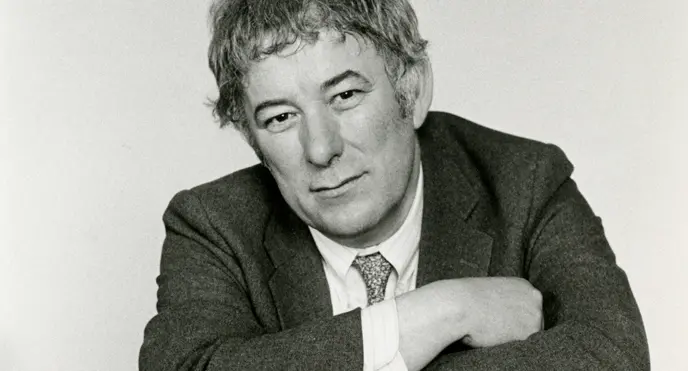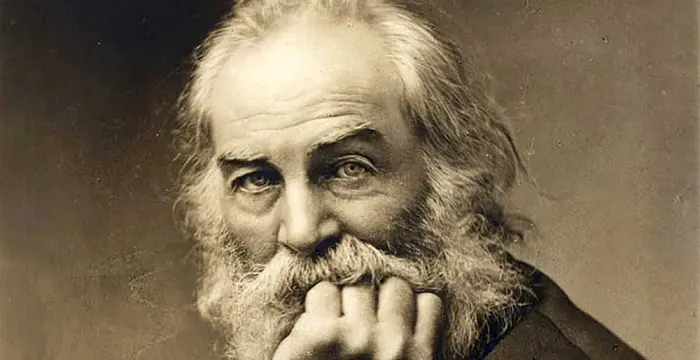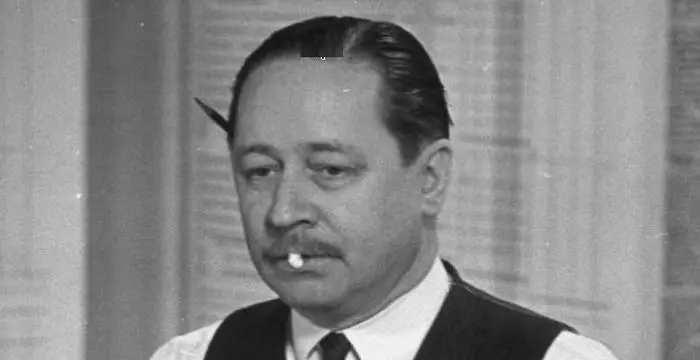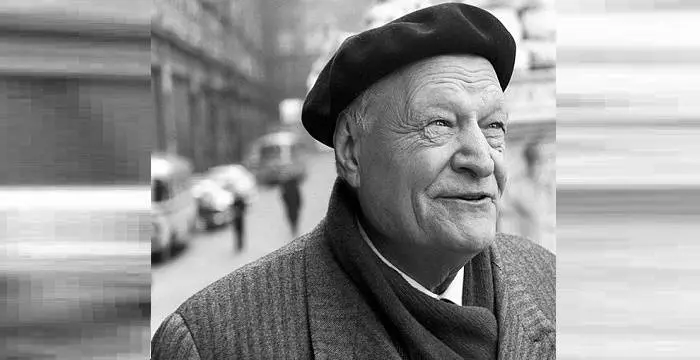
Giuseppe Ungaretti - Media Personalities, Facts and Childhood
Giuseppe Ungaretti's Personal Details
Giuseppe Ungaretti was an Italian modernist poet , essayist and journalist
| Information | Detail |
|---|---|
| Birthday | February 8, 1888 |
| Died on | June 1, 1970 |
| Nationality | Italian |
| Famous | Media Personalities, Journalists, Poets, Essayists |
| Birth Place | Alexandria, Egypt |
| Gender | Male |
| Sun Sign | Aquarius |
| Born in | Alexandria, Egypt |
| Famous as | Poet, Essayist |
| Died at Age | 82 |
// Famous Essayists
Ruskin Bond
Ruskin Bond is an award winning Indian author of British descent. This biography of Ruskin Bond provides detailed information about his childhood, life, achievements, works & timeline.
Simone de Beauvoir
Simone de Beauvoir was an eminent French writer, intellectual, activist, and philosopher. This biography profiles her childhood, life, thoughts, achievements and timeline.
Sandra Cisneros
Sandra Cisneros is an American writer known for audaciously penning the realities and expectations from females in US and Mexico. This biography provides detailed information about her childhood, life, achievements, works & timeline
Giuseppe Ungaretti's photo
Who is Giuseppe Ungaretti?
Giuseppe Ungaretti was an Italian modernist poet and a recipient of the inaugural 1970 Neustadt International Prize for Literature. He is considered to be one of the leading contributors to twentieth century Italian literature, particularly for founding the experimental trend in poetry known as ‘Ermetismo’ or ‘Hermeticism’. During his school days in Egypt, Ungaretti was deeply influenced by French symbolist poets like Stéphane Mallarmé. His ‘technique of obscuration’ is based on the symbolism movement and the belief that the poet is the custodian of mysterious secrets. His works reveal a preoccupation with philosophical questions like the mysteries of the cosmos and the insignificance of human life. He was also briefly influenced by the movement of futurism and supported the national irredentism movement. He served in the trenches during World War I and was appalled at the brutalities of the war. During the interwar period, he also served as a foreign correspondent for newspapers like ‘IL Popolo d'Italia’ and ‘Gazzetta del Popolo’. Ungaretti was a member of the National Fascist Party and a collaborator of Benito Mussolini but changed his Fascist views later in life.
// Famous Media Personalities
Wanda Nara
Wanda Nara is an Argentine model, reality personality, and football agent, more famous as the wife of Argentine football player Mauro Icardi.
Melinda Farrell
Melinda Farrell is an internationally renowned sports anchor and freelance sports reporter. This biography profiles her childhood, life, career, achievements, and some facts.
Art Bell
Art Bell was an American broadcaster and author, known as ‘The King of Late Night Radio.’ Check out this biography to know more about his childhood, family, personal life, career, etc.
Childhood & Early Life
Giuseppe Ungaretti was born on 10 February 1888 in Alexandria, Egypt in a family from the Tuscan city of Lucca.
Ungaretti's father died in 1890 while working on the digging of the Suez Canal Project.
His widowed mother ran a baker’s oven to support her family and raised her child in Roman Catholic faith.
He studied in Alexandria’s Swiss School till 1905. There he learnt about the Parnassianism and Symbolist poetry and also became acquainted with the works of classicists. During the same time, he began working as a journalist and literary critic. A few of his pieces came out in a journal edited by Enrico Pea, ‘Risorgete’.
In 1912, he went to Paris to study at the Collège de France and the Sorbonne. There he came under the influence of surrealists like Guillaume Apollinaire and furiststs like Umberto Boccioni, Ardengo Soffici and Giovanni Papini.
Involvement in War & Literary Career
In 1915, Ungaretti enrolled in the infantry and he was posted at the Northern Italian theatre during the World War I.
He was shaken by the brutalities of war and in 1917 published his first volume of poetry, ‘Il porto sepolto’ (‘The Buried Port’) which was mostly written during his term at the Kras front.
When the 1918 armistice was signed, Ungaretti returned back to Paris, and started working as a reporter for Benito Mussolini's paper ‘Il Popolo d'Italia’.
In 1919, he published a volume of French-language poetry, titled ‘La guerre’ (‘The War’). This volume stands out against the works of the ‘Lost Generation’ poets because it did not altogether dismiss the purpose of war.
After coming back to Paris, he became increasingly associated with the Dadaists like Tristan Tzara and Enrico Prampolini.
In 1919, he published ‘Aggegria di naufragi’ (‘Gay shipwrecks’), a volume that shows the influence of futurist poet, Giacomo Leopardi.
In May 1921, he was present at the Dadaist mock trial of Maurice Barrès, an event which signalled the division of Dadaist movement.
In 1921, Ungaretti settled in Rome as a Foreign Ministry employee.
In 1925, he joined the ‘National Fascist Party’ by signing the pro-fascist ‘Manifesto of the Italian Writers’.
In 1931, he became a foreign correspondent for ‘Gazzetta del Popolo’.
During the same time, he introduced ‘Ermetismo’ or ‘Hermeticism’, the writing style that is indebted to symbolists like Rimbaud, Mallarmé and Paul Valéry.
In 1933 he published ‘Sentimento del tempo’ or ‘The Feeling of Time’ which was a collection of all the poems written between 1919 and 1932.
In 1936, he moved to São Paulo and started teaching Italian at the São Paulo University.
In 1942 he became a professor of Modern Literature at the University of Rome, where he taught till his retirement in 1957.
In 1947 he composed ‘Il dolore’ (‘Grief’) to mourn the death of his son.
When the Fascist powers started declining, he was expelled from the University because of his Fascist past. However, his colleagues raised their voice in support of his returmn.
Other important poetry volumes that he wrote were ‘La terra promessa (‘The Promised Land’) in 1950, ‘Ill taccuino del vecchio’ (‘An Old Man’s Notebook) in 1960 and ‘Morte delle stagioni’ (‘Death of the Seasons) in 1967.
Major Works
Ungaretti's first collection of verse, Il porto sepolto (1916) is considered to be his most influential work as it departed from the traditional forms of poetry.
‘L'Allegria’, previously called ‘L'Allegria di Naufragi’, is another important work where Ungaretti combines the poetic style of ‘poètes maudits’ and his experiences as a soldier.
Awards & Achievements
In 1970 he was awarded the Neustadt International Prize for Literature or Books Abroad Prize by the University of Oklahoma.
Personal life & Legacy
In 1920, Giuseppe Ungaretti married a Frenchwoman Jeanne Dupoix.
The couple had a daughter, Ninon (born 1925), and a son, Antonietto (born 1930).
In 1939, his son Antonietto died as a result of a wrongly performed appendectomy.
Ungaretti’s wife died in 1958. To keep himself away from grief, he travelled through Italy and abroad.
During the last trip, Ungaretti fell ill with bronchopneumonia and died under medical supervision in Milan on 2 June 1970.
He was buried in Campo Verano in Rome.
// Famous Poets
Charles Bukowski
Charles Bukowski was a German-born American novelist, short story writer and poet. With this biography, learn in details about his childhood, life, works, career and timeline
Seamus Heaney
Nobel Laureate Seamus Heaney was an Irish poet, playwright and translator. Know about his profile, childhood, life and timeline in the biography below.
Walt Whitman
Walt Whitman was an American poet, journalist and humanist. Read this brief biography to find more on his life & timeline.
Giuseppe Ungaretti biography timelines
- // 10th Feb 1888Giuseppe Ungaretti was born on 10 February 1888 in Alexandria, Egypt in a family from the Tuscan city of Lucca.
- // 1890Ungaretti's father died in 1890 while working on the digging of the Suez Canal Project.
- // 1905He studied in Alexandria’s Swiss School till 1905. There he learnt about the Parnassianism and Symbolist poetry and also became acquainted with the works of classicists. During the same time, he began working as a journalist and literary critic. A few of his pieces came out in a journal edited by Enrico Pea, ‘Risorgete’.
- // 1912In 1912, he went to Paris to study at the Collège de France and the Sorbonne. There he came under the influence of surrealists like Guillaume Apollinaire and furiststs like Umberto Boccioni, Ardengo Soffici and Giovanni Papini.
- // 1915In 1915, Ungaretti enrolled in the infantry and he was posted at the Northern Italian theatre during the World War I.
- // 1916Ungaretti's first collection of verse, Il porto sepolto (1916) is considered to be his most influential work as it departed from the traditional forms of poetry.
- // 1917He was shaken by the brutalities of war and in 1917 published his first volume of poetry, ‘Il porto sepolto’ (‘The Buried Port’) which was mostly written during his term at the Kras front.
- // 1918When the 1918 armistice was signed, Ungaretti returned back to Paris, and started working as a reporter for Benito Mussolini's paper ‘Il Popolo d'Italia’.
- // 1919In 1919, he published a volume of French-language poetry, titled ‘La guerre’ (‘The War’). This volume stands out against the works of the ‘Lost Generation’ poets because it did not altogether dismiss the purpose of war.
- // 1919In 1919, he published ‘Aggegria di naufragi’ (‘Gay shipwrecks’), a volume that shows the influence of futurist poet, Giacomo Leopardi.
- // 1920In 1920, Giuseppe Ungaretti married a Frenchwoman Jeanne Dupoix.
- // 1921In 1921, Ungaretti settled in Rome as a Foreign Ministry employee.
- // May 1921In May 1921, he was present at the Dadaist mock trial of Maurice Barrès, an event which signalled the division of Dadaist movement.
- // 1925In 1925, he joined the ‘National Fascist Party’ by signing the pro-fascist ‘Manifesto of the Italian Writers’.
- // 1925 To 1930The couple had a daughter, Ninon (born 1925), and a son, Antonietto (born 1930).
- // 1931In 1931, he became a foreign correspondent for ‘Gazzetta del Popolo’.
- // 1936In 1936, he moved to São Paulo and started teaching Italian at the São Paulo University.
- // 1939In 1939, his son Antonietto died as a result of a wrongly performed appendectomy.
- // 1942 To 1957In 1942 he became a professor of Modern Literature at the University of Rome, where he taught till his retirement in 1957.
- // 1947In 1947 he composed ‘Il dolore’ (‘Grief’) to mourn the death of his son.
- // 1958Ungaretti’s wife died in 1958. To keep himself away from grief, he travelled through Italy and abroad.
- // 1970In 1970 he was awarded the Neustadt International Prize for Literature or Books Abroad Prize by the University of Oklahoma.
- // 2nd Jun 1970During the last trip, Ungaretti fell ill with bronchopneumonia and died under medical supervision in Milan on 2 June 1970.
// Famous Journalists
Sunny Hostin
Sunny Hostin is an American lawyer, social commentator, columnist and journalist. Check out this biography to know about her childhood, family life, achievements and fun facts about her.
Melinda Farrell
Melinda Farrell is an internationally renowned sports anchor and freelance sports reporter. This biography profiles her childhood, life, career, achievements, and some facts.
Pete Hegseth
Pete Hegseth is a FOX News Channel contributor from America. Check out this biography to know about his childhood, family life, achievements and fun facts about him.
Shannon Bream
Shannon Bream is an American journalist and a Fox News veteran. Check out this biography to know about her childhood, family life, achievements and fun facts about her.
Harris Faulkner
Harris Faulkner is a new anchor and television presenter for Fox News Channel. Check out this biography to know about her childhood, family life, achievements and fun facts about her life.
Robert Benchley
Robert Benchley was a writer and actor famous for his humor which influenced generations of humorists to come. This biography provides detailed information about his childhood, life, achievements, works & timeline.
Giuseppe Ungaretti's FAQ
What is Giuseppe Ungaretti birthday?
Giuseppe Ungaretti was born at 1888-02-08
When was Giuseppe Ungaretti died?
Giuseppe Ungaretti was died at 1970-06-01
Where was Giuseppe Ungaretti died?
Giuseppe Ungaretti was died in Milan, Italy
Which age was Giuseppe Ungaretti died?
Giuseppe Ungaretti was died at age 82
Where is Giuseppe Ungaretti's birth place?
Giuseppe Ungaretti was born in Alexandria, Egypt
What is Giuseppe Ungaretti nationalities?
Giuseppe Ungaretti's nationalities is Italian
What is Giuseppe Ungaretti's sun sign?
Giuseppe Ungaretti is Aquarius
How famous is Giuseppe Ungaretti?
Giuseppe Ungaretti is famouse as Poet, Essayist
